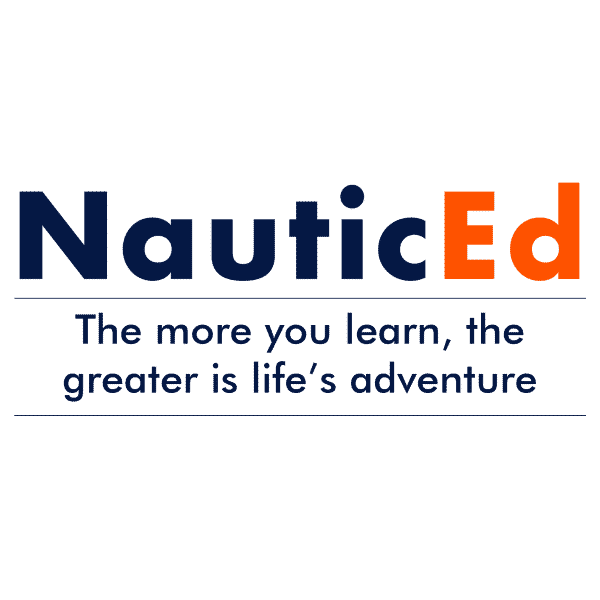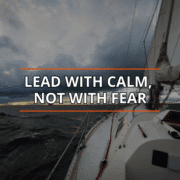Sign up with NauticEd for FREE (no obligation) and receive 2 free boating courses, a free eLogbook and boating resume, and more! If you want to get started in boating or are experienced and want to expand your knowledge and skills, consider taking our many online sailing and powerboating courses.
How Hard is Sailing, Really?
One of the interesting things about sailing is the mystery that surrounds it. At one point in my life, I was actually paid to sail—wild times. For a while, whenever someone asked what I did, I’d simply say, “I sail.” People would always pause and ask, “Like the Navy?” And I’d reply, “No, yachts.”
That answer instantly created a persona. To others, it carried a sense of adventure, skill, or luxury. One thing was for sure—it commanded a certain level of respect or desire.
And I think that’s part of the problem with sailing in the U.S. There’s a persona that sailing is either wildly expensive or reserved for the daring few with elite skills. It’s seen as something that’s out of reach for the average person.
But from my perspective, sailing isn’t all that difficult. Sure, becoming the best sailor in the world might take a lifetime. But that’s a different journey than just learning how to sail confidently. It’s like driving a car—some people commute safely every day, and then there are NASCAR drivers. There are levels to this.
Learning to sail is EASY! Once you get started, then the fun begins with advancing your skills, sailing larger boats, and safely ranging near-coastal or multi-day sails.
Don’t get me wrong, sailing takes effort to grasp. But people have been sailing for longer than we’ve had recorded history. It’s not some untouchable skill—it just takes the right approach.
Before I break down what it actually takes to become competent, I’ll share a bit of my own story.
I didn’t grow up sailing. I got into it in my 20s. I had never stepped on a boat before then. I didn’t take a course—I just read every book I could get my hands on and copied the directions. I was offered discounted in-person courses, but even the discounted rate was out of reach for my law school budget. So I did the next best thing: I found people who knew how to sail and forced myself to get out on the water. My naivety had me sailing in some intense conditions.
In my experience, there are three things you need to learn if you want to become competent at sailing:
1. Theory Knowledge
This is the “why” behind sailing. You need to understand how boats interact with the wind and water. You can’t see the wind, so a lot of sailing requires you to visualize forces and movement. That’s where reading, watching videos, or structured learning comes in. You need to understand the principles: sail trim, balance, hull dynamics, weather, and navigation.
2. Practical Skills
This is where you take what you know and apply it. Ideally, you’re out on the water with someone experienced—learning how to handle lines, trim sails, tack, gybe, anchor, and dock. Because sailors vary wildly in skill, your best bet is to learn through a proper school that provides structure.
3. Experience
This is the reps. This is what makes everything click. Experience means applying your theory and practice across different conditions. Wind shifts. Currents change. Storms roll in. Boats behave differently. The only way to become truly competent is through repetition and exposure.
If I could go back and do it all over again, I would’ve absolutely added NauticEd courses into the mix. And though you’re reading this on their blog, I truly mean it—I’ve taken the courses myself.
What stands out most to me about NauticEd is the e-learning format. I had never done an e-learning course before, and their mix of animations, videos, and text made understanding sailing concepts so much easier.
You can learn more with NauticEd

Sign up with NauticEd for FREE (no obligation) and receive 2 free boating courses, a free eLogbook and boating resume, and more! If you want to get started in boating or are experienced and want to expand your knowledge and skills, consider taking our many online sailing and powerboating courses.







